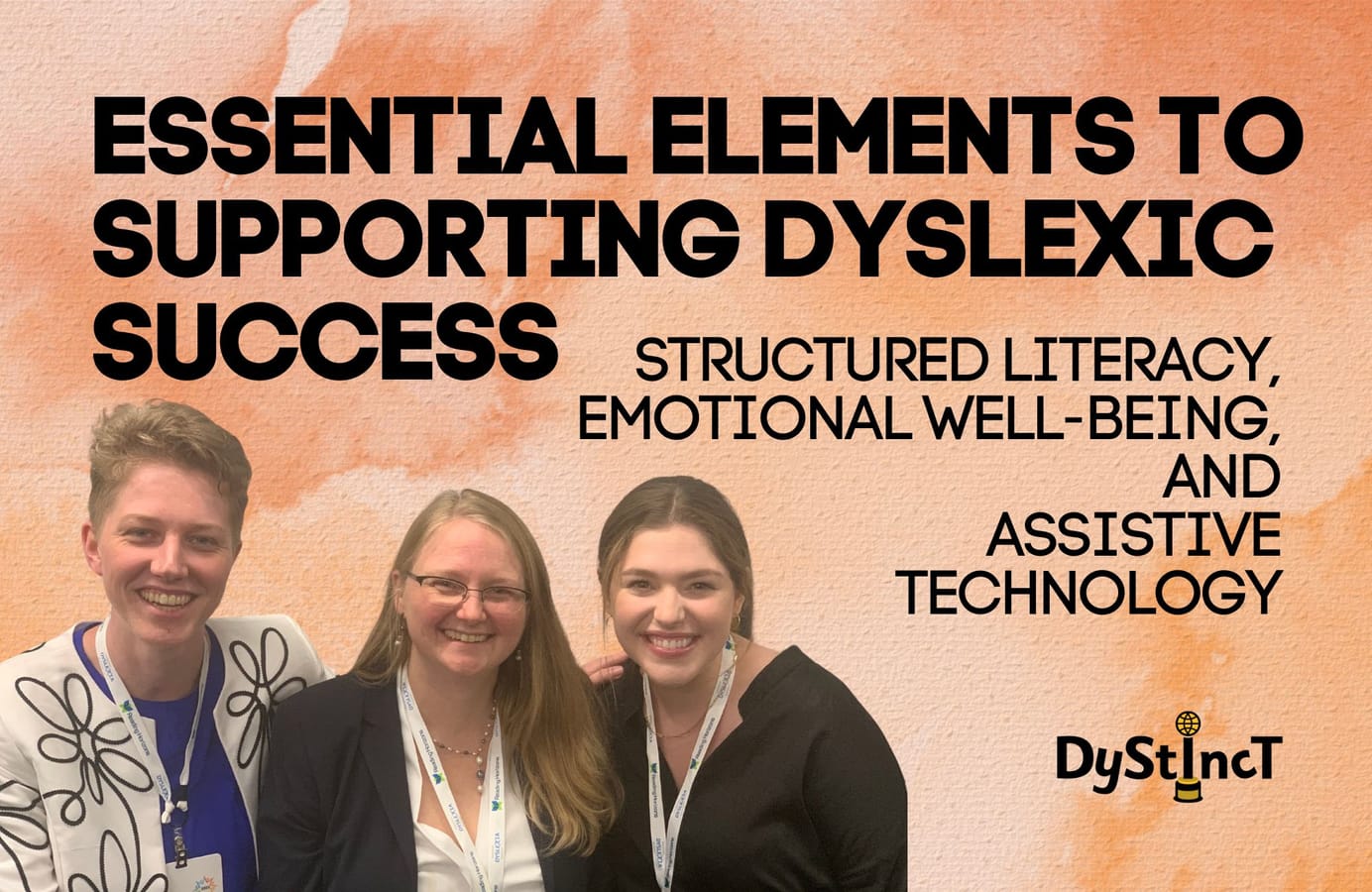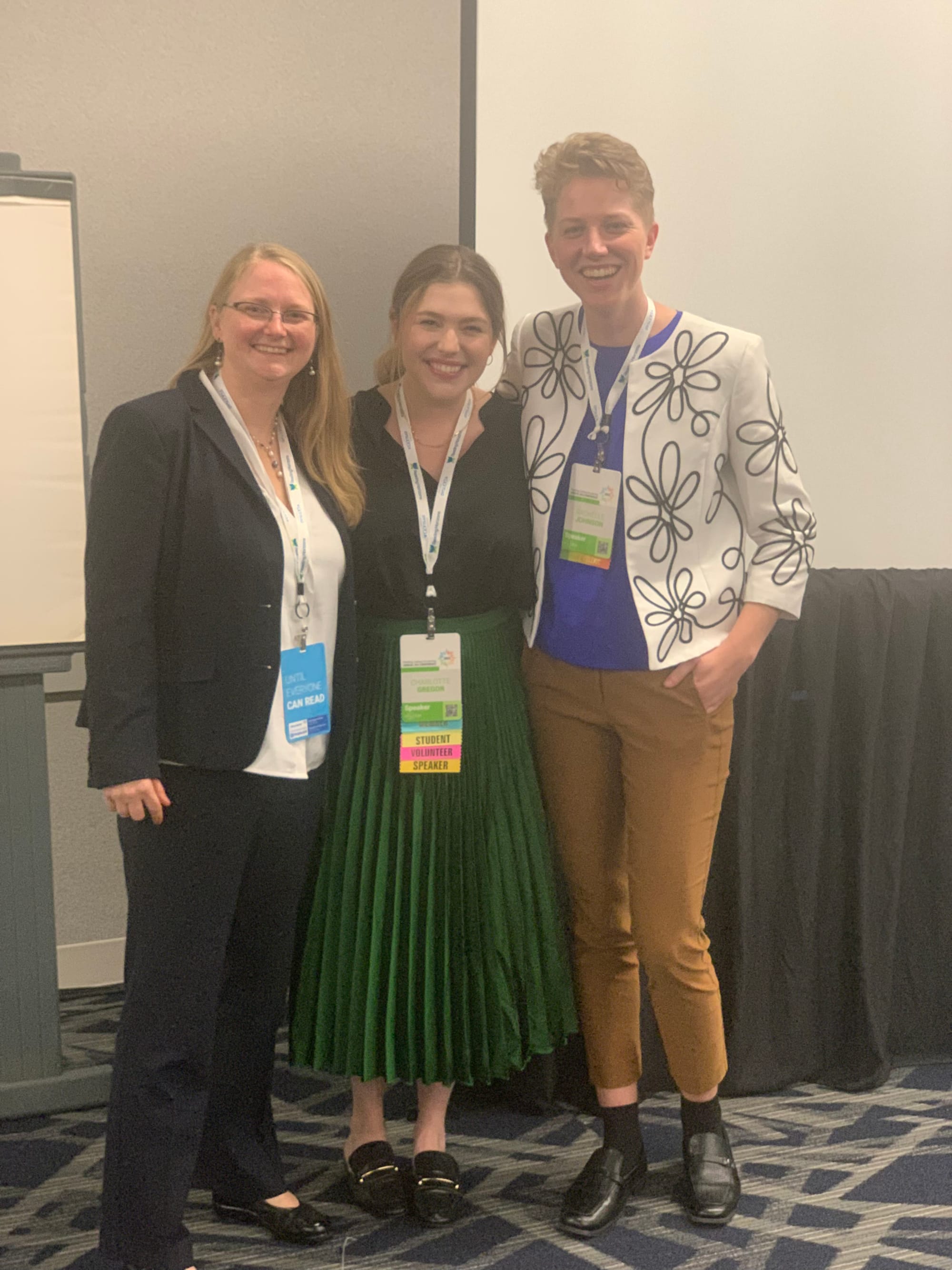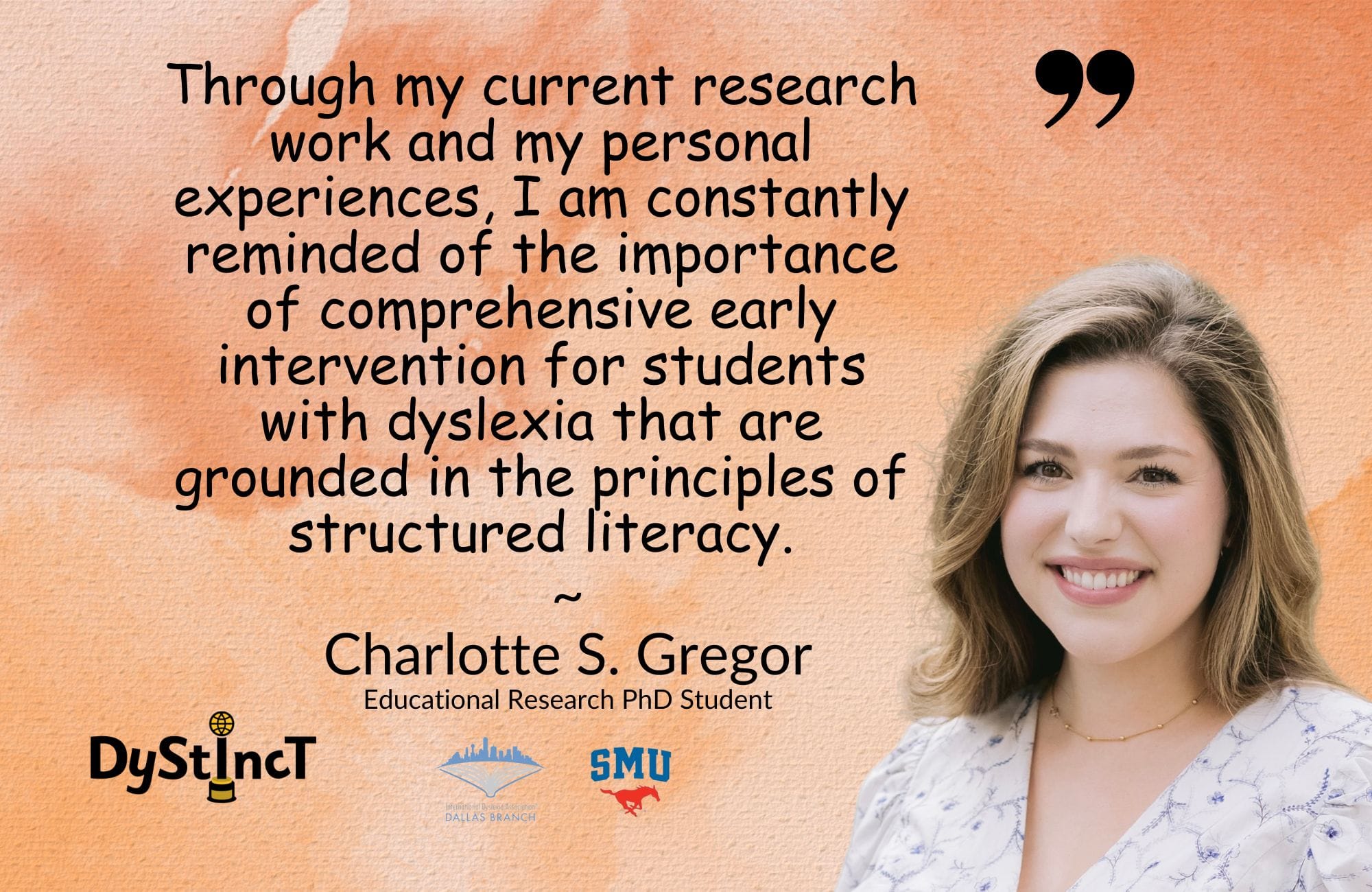
Issue 21: Essential Elements to Supporting Dyslexic Success: Structured Literacy, Emotional Well-being, and Assistive Technology | Rachelle M. Johnson, Charlotte S. Gregor & Sarah G. Wood
Researchers in the field of reading and dyslexia who are themselves dyslexic, draw from their personal experiences and research expertise to advocate for structured literacy, emotional well-being, and assistive technology as crucial elements for the success of dyslexic individuals.
Rachelle M. Johnson is a Learning Disability & Reading Researcher [rachellemjohnson.wordpress.com]
Charlotte S. Gregor is an Educational Research PhD Student [smu.edu/simmons/academics/phd/students]
Sarah G. Wood is an Accessibility Scientist [linkedin.com/in/sarahgeisswood]

Structured Literacy
Charlotte S. Gregor
Structured Literacy
Through my current research work and my personal experiences, I am constantly reminded of the importance of comprehensive early intervention for students with dyslexia that are grounded in the principles of structured literacy.
-
Charlotte S. Gregor

I was diagnosed with a speech impediment, language processing disorder, and gross/fine motor impairments at the age of three. At the age of seven, I was diagnosed with dyslexia. My childhood memories are filled with scenes of the therapists who worked tirelessly to ensure that I could have access to any future I set my mind to. I recognize the immense privilege it was to access the comprehensive early intervention that I did, and I will forever be grateful for my family and the community of professionals who supported me along the way. Because of their tireless efforts, I have had the opportunity to excel in, and truly love school - so much so that I am currently pursuing my PhD, where I specialize in research surrounding foundational literacy acquisition for students with disabilities (just like me).
Through my current research work and my personal experiences, I am constantly reminded of the importance of comprehensive early intervention for students with dyslexia that is grounded in the principles of structured literacy. Structured literacy programs effectively teach the foundational literacy skills students with dyslexia need most in a manner that is straightforward to them (Spear-Swerling, 2019). This structure and clear methodology can be empowering to students who find themselves struggling to learn to read, and the use of these programs has been shown to make the difficult work of learning to read more engaging for them. I know that, for me, the explicit and systematic nature of the structured literacy program that my therapist used to remediate my early reading difficulties helped me grasp concepts faster and avoid that panicked feeling that typically came from not knowing what was being asked of me in a literacy learning environment.
But what is structured literacy? Structured literacy is an umbrella term that refers to teaching approaches that focus on specific types of literacy content and utilize specific instructional features (Spear-Swerling, 2022). The content of a structured literacy program includes instruction in all the major areas of reading instruction, including phonemic awareness, phonics, orthography, morphology, syntax, and semantics (IDA 2019, 2020). The instructional features of a structured literacy program, which refer to how the content is taught, include:
- explicit and systematic teaching
- purposeful selection of instructional texts, tasks, and examples
- attention to the prerequisite skills needed to complete a task
- targeted, unambiguous, and prompt feedback
- data-based decision-making
- consistent application of skills/teaching to encourage the transfer of understanding
It is a common misconception that structured literacy refers to one singular program, but any literacy program that includes the necessary content and encourages use of these instructional features is considered a structured literacy program.
If your student is struggling to learn to read, seek out remediation services grounded in the principles of structured literacy and, if you can, seek them out early. The earlier students can receive intervention, the better. While both early and remedial intervention can be effective for students, early interventions may provide students with stronger and more long-lasting results (Case et al., 2014; Elbro & Petersen, 2004; Lovett et al., 2017; Roberts et al., 2013; Vaughn et al., 2011). For me, receiving early intervention for reading (as well as the other deficits I faced) altered the trajectory of my life and provided me with the ability and confidence to pursue the work that I love.
This post is for paying subscribers only
SubscribeAlready have an account? Log in


